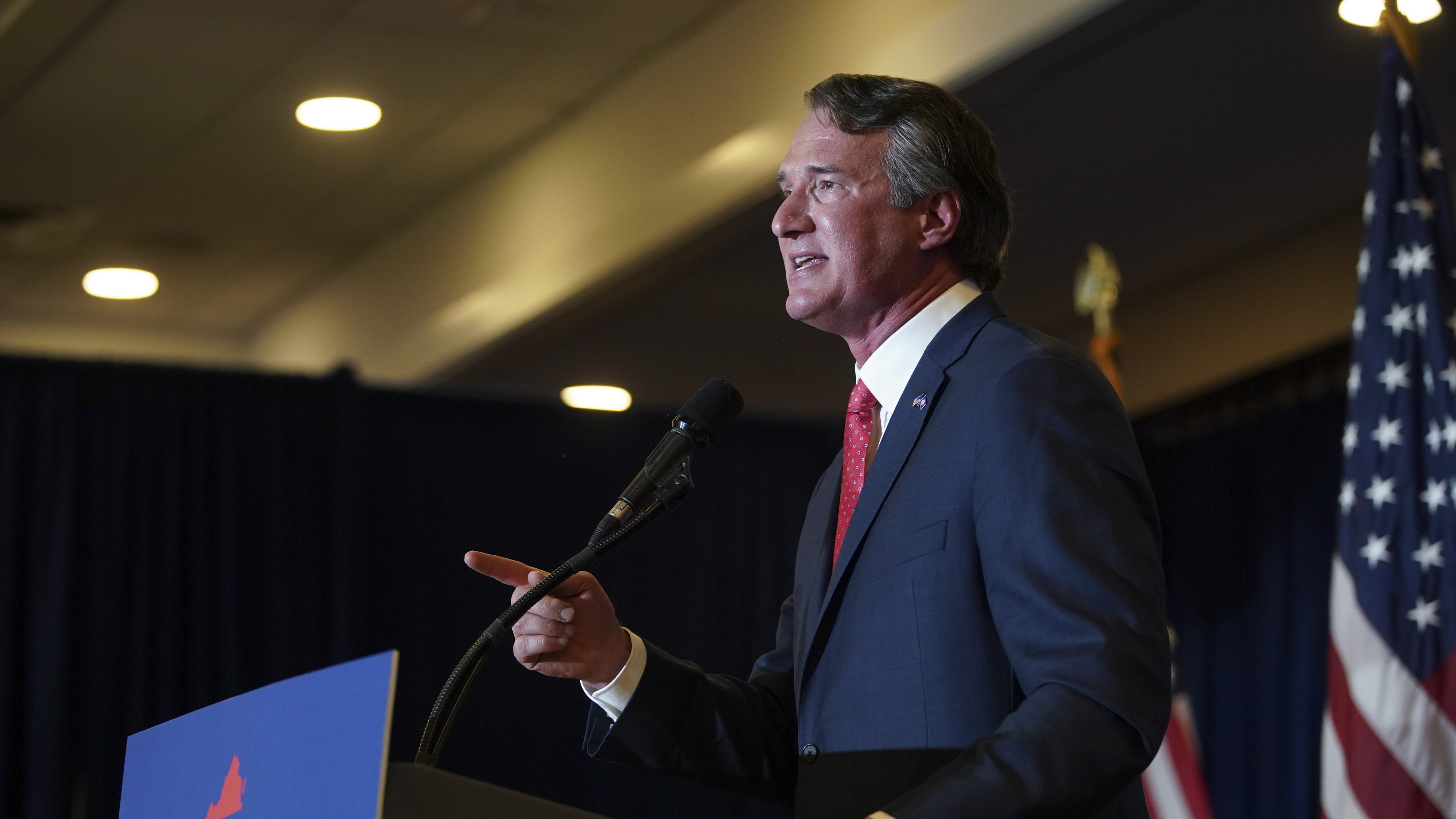
Glenn Youngkin, governor-elect of Virginia, speaks during an election night event in Chantilly, Virginia, U.S., November 3, 2021. /Getty
Glenn Youngkin, governor-elect of Virginia, speaks during an election night event in Chantilly, Virginia, U.S., November 3, 2021. /Getty
Editor's note: Andrew Korybko is a Moscow-based American political analyst. The article reflects the author's views and not necessarily those of CGTN.
The Republicans defeated the Democrats in Virginia's elections on Tuesday. The Grand Old Party (GOP) won the posts for governor and lieutenant governor and was narrowly leading in the attorney general race. Last year, the same state helped Joe Biden beat the incumbent Donald Trump by a little over 10 percent to win the U.S. presidency.
The latest outcomes will scare Democrats, since they suggest that average Americans are becoming increasingly unhappy with the country's ruling party ahead of next year's midterm elections. A Gallup poll released late last month showed that Biden had a larger drop in approval rating than any other U.S. president since World War II.
The reasons for the rising displeasure with the country's top Democrat are plenty. His COVID-19 containment policies have polarized the country. The economy continues to struggle, and its reported recovery is considered by many to be ephemeral. Democrats' support for controversial race and gender policies in U.S. schools also hasn't helped their popularity.
Virginia became a battleground for the teaching of critical race theory and the promotion of transgender bathroom policies, after recent scandals connected to them. Therefore, many considered the state's elections to be a referendum on the Democratic Party.
The Republicans won, not only because their alternative policies are perceived as more popular among the Virginian electorate, which some observers regard as representative of the contemporary views of average Americans, but perhaps also partially because of two manufactured scandals backfiring.
The first concerned Democrats' efforts to portray Republican candidate Glenn Youngkin as an acolyte of Trump in all respects. This was intended to scare moderate voters away from supporting the Republicans. Although these two figures have some political commonalities, Youngkin's personality is very different from Trump's, which discredited the comparison.
The second scandal involved the Lincoln Project's self-admitted efforts to smear Youngkin as a so-called "white nationalist" after sending several activists dressed in that movement's stereotypical attire to stand in front of Youngkin's campaign bus in Charlottesville, claiming to support him. That city is where self-described "white nationalists" organized the "Unite the Right" rally in summer 2017, which descended into violence and claimed one life and resulted in several dozens of injuries.
It was seen as an infamous moment during Trump's term in office and reflected the rising racial and partisan tensions across the country. This false flag stunt might have enraged voters who have grown sick of political games.

Terry McAuliffe, Democratic gubernatorial candidate for Virginia, speaks at an election night event in McLean, Virginia, U.S., November 2, 2021. /Getty
Terry McAuliffe, Democratic gubernatorial candidate for Virginia, speaks at an election night event in McLean, Virginia, U.S., November 2, 2021. /Getty
All these observations should seriously concern Democrats. Average Americans in Virginia voted against them as a form of protest against the party's policies, despite the party's overactive efforts to connect Youngkin to Trump.
Evidently, the electorate wasn't scared into voting against Republicans on that basis anymore, since many of them voted for Biden a year ago simply because he wasn't Trump, the man who many believed was America's most polarizing president. This scaremongering might no longer work on a national level, nor will false flag efforts like the Lincoln Project's, which were intended to support the Democrats. Actual policies – whether cultural (critical race theory and transgenderism in schools), economic, and epidemiological – matter much more.
(If you want to contribute and have specific expertise, please contact us at opinions@cgtn.com.)

